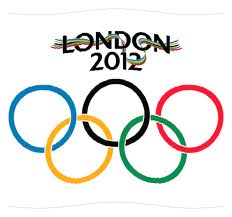A friend recently challenged me to a game of ping pong, an activity that I once thought that I was good at, but had since been dissuaded of that obviously incorrect opinion after countless beatings. Still I was idle and it sounded like a good way to spend the afternoon.
I knew I was in trouble right away, not so much for the paddle that he used or the way he examined each ball, but rather because he started to discuss the members of the U.S. Table Tennis team and their chances in the upcoming Summer Olympics.
I am not sure of I knew that t was still an Olympic sport (it has been since 1988). My memories of it being televised are from the movie “Forest Gump” and a vague recollection of Ping Pong Diplomacy when Richard Nixon was president.
This piqued my interest so after the inevitable slaughter I did a bit of research and was somewhat amazed at the depth and breadth of the sport’s acceptance. A brief recap from Wikipedia shows that governing body is the International Table Tennis Federation founded in 1926, that the ITTF has 217 member associates and that the game originated in Great Britain in the 1880s and that recently the ball’s size was expanded to slow the game down, from 38 mm to 40 mm.
In the US the USA Table Tennis is the governing body and has been since 1933 and features 250 clubs and 9,000 official members and an estimated 2 million play it annually. It sanctions 300 tournaments a year, operates a league system and the rating system for players and teams, among other activities. Oh, and it oversees the U.S. Olympic team.
The trials have already been held, in April to be exact, and the one man and three women players have been selected from the trials held in Cary, N.C. On the U.S. team there will be Ariel Hsing, Erica Wu, Lilly Zhang and Timothy Wang.
An interesting footnote is that three of the players, Zhang, Wang and Hsing all train at the India Community Center Table Tennis Center in Milpitas, Calif.
Grantland had a very nice piece on the sport a while back that focused on a player that did not qualify. I recommend heading over if you are interested in what the life is like in a sport that does not draw in the big money but still has players that love it.
If you do decide to watch the Table Tennis at the Olympics rather than a more mainstream sport the matches will start on Sunday July 28 and run to Wednesday Aug. 8. There will be men’s and women’s singles as well as team events. China is the defending champion, having swept all four golds in 2008.








